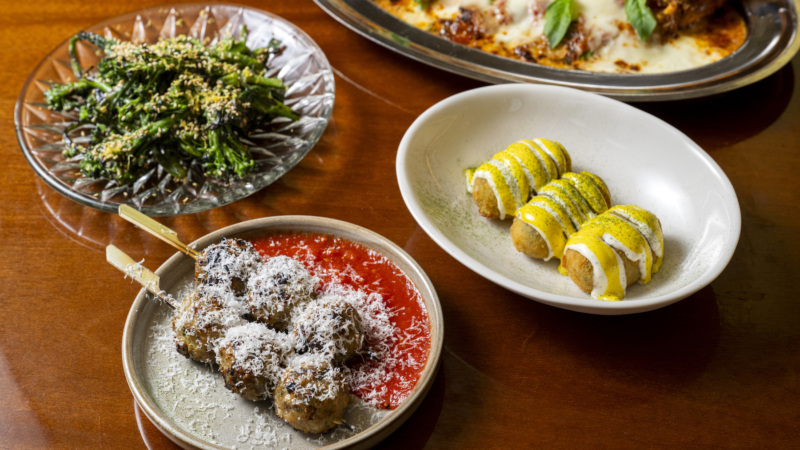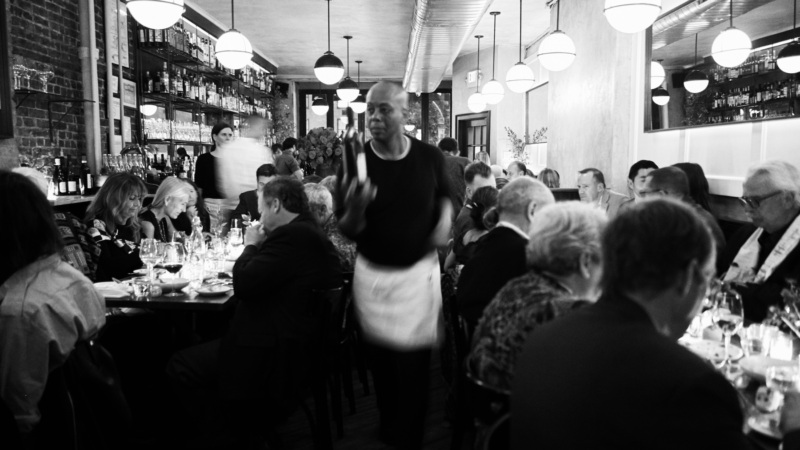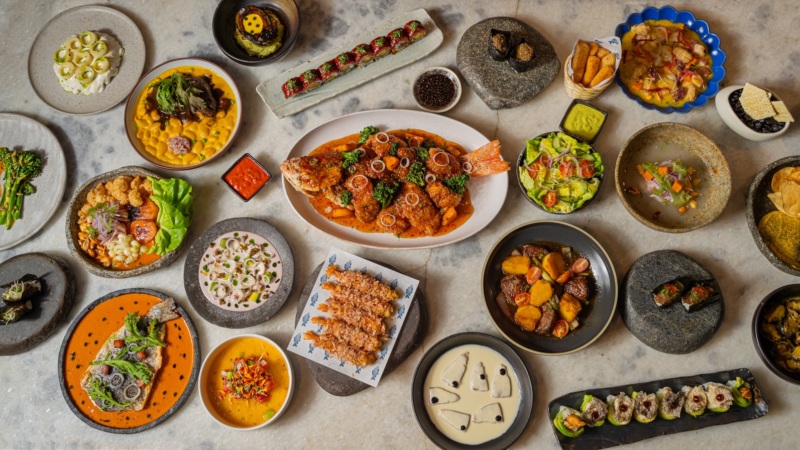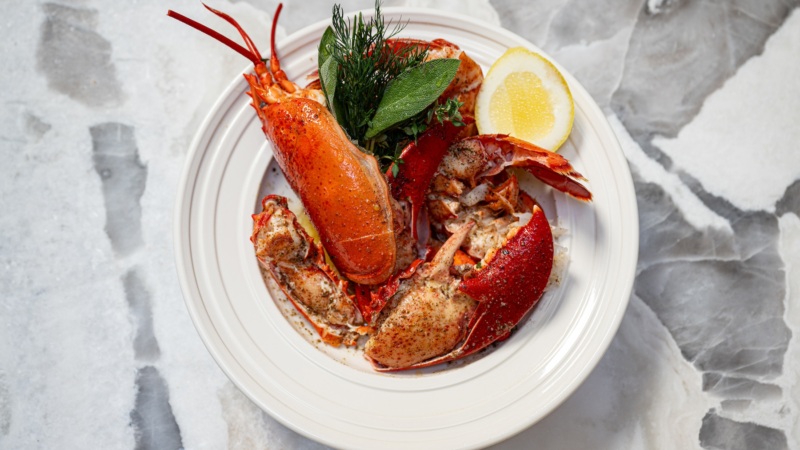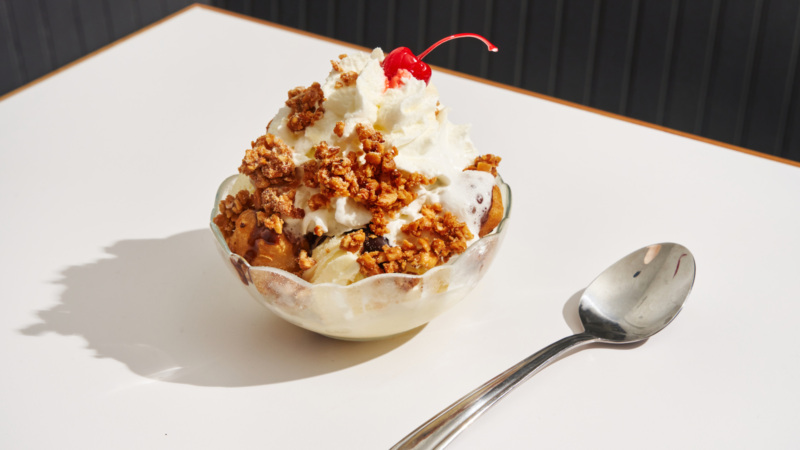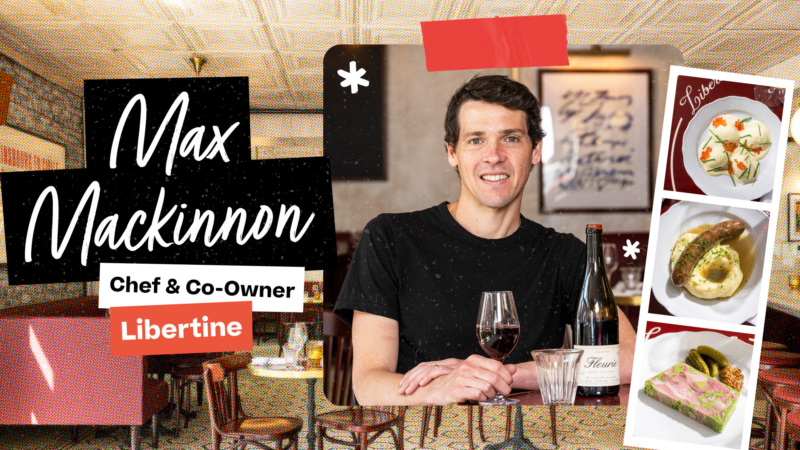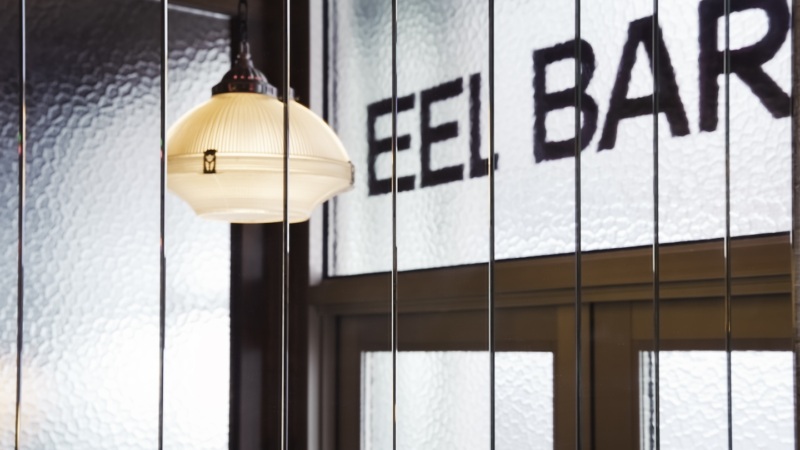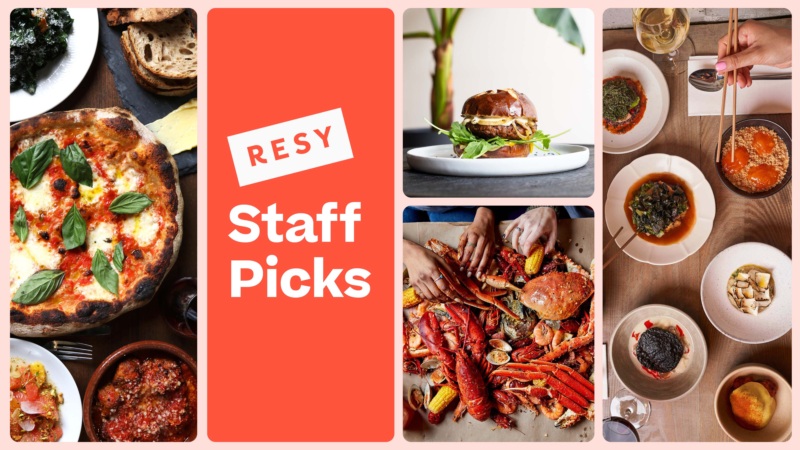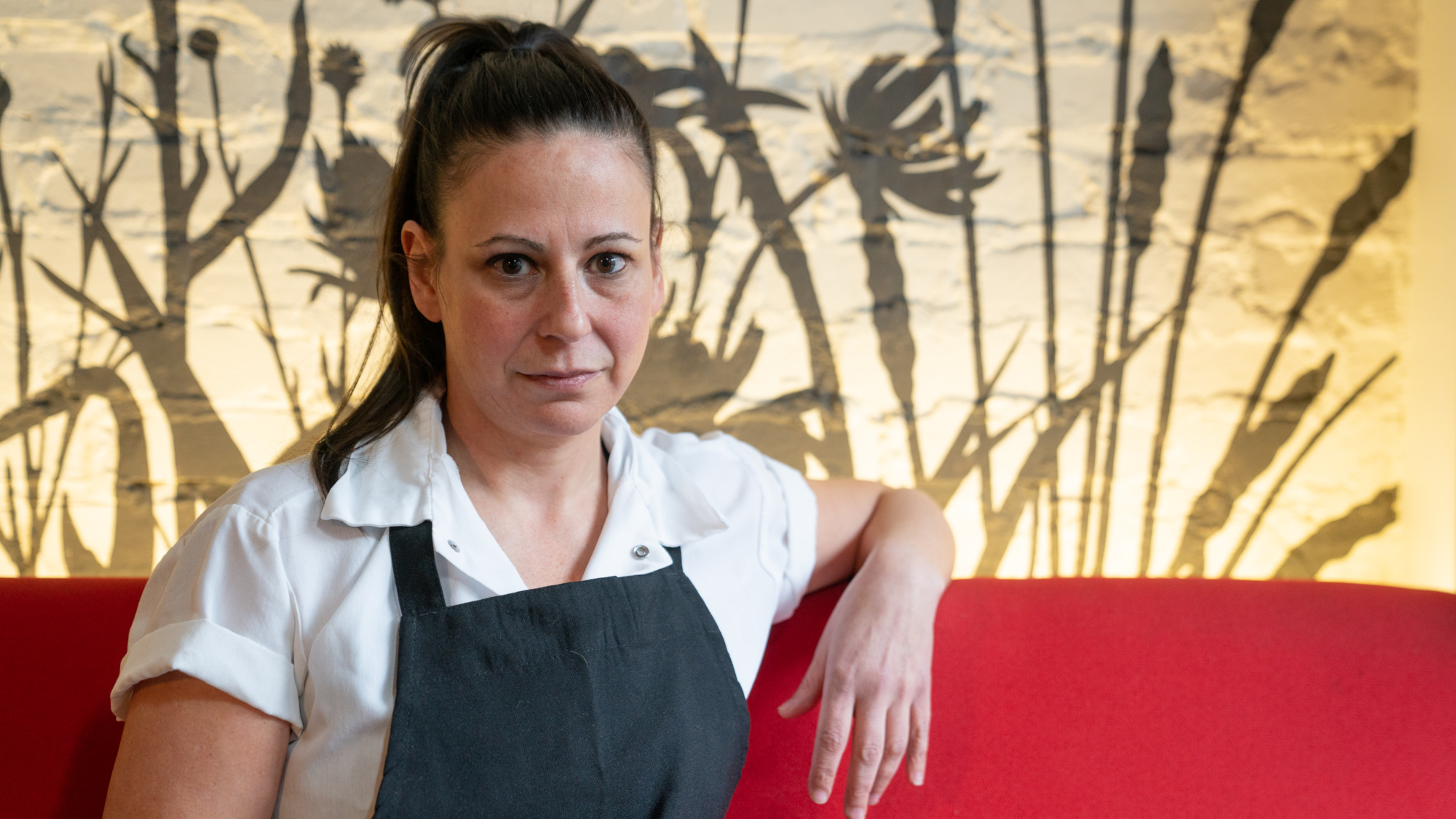
Amanda Cohen Has Pioneered So Much. Why Aren’t We Listening to Her?
Last summer, the New York Times ran a breathless, 2,000-word piece about watermelon ham, proclaiming it, along with root vegetable jerky and carrot hot dogs, part of a new trend of foods that are “cured, smoked, and served as charcuterie — yet … made without meat.” The author interviewed the chefs behind radish prosciutto and pastrami-cured burdock root, positioning the men not as sallow-skinned vegans, but as red-blooded carnivores. Sure, they cook vegetables, but have you tasted their smoked goat-neck tacos?
Not only is plant-based charcuterie not a particularly new trend — Buddhist monks have been making imitation char siu and ham for centuries — but it’s not even a particularly new trend within the world of fine dining. A tweet that sacrificed kerning for vehemence said as much: “Hi!Remember me?I have been serving plant based charcuterie since 2008.Broccoli Hot Dogs!Beet Pastrami!Carrot Burgers!Mushroom Mousse!Not one female chef in that story. Good to know that the grand old tradition of writing us out of the history of food is alive & well in 2020.”
- Kalaya’s Chutatip “Nok” Suntaranon Wants You to Understand Real Thai Food
- Tear Down the Restaurant Industry? Virtue’s Erick Williams Would Rather Lead By Building From Within
- On Restaurants, Strikes, and the Industry’s Future: A Conversation with Gabrielle Hamilton
- Five Things to Watch in the Restaurant World in 2021
The author of that tweet was Amanda Cohen, the chef-owner of New York City vegetable-focused restaurant Dirt Candy. Cohen possesses an incredibly aspirational résumé, one that should make her, if not a household name, someone not easily overlooked by the food section of her city’s paper of record.
In 2008, she opened the original Dirt Candy in a narrow space on Ninth Street. It seated eighteen in the same way that a Honda Fit seats five, and was the first vegetarian restaurant in 17 years to be awarded two stars by the Times. The paper’s critic, Pete Wells, paid a visit four years later in 2012, writing that dining at Dirt Candy was like “going to a child’s birthday party in a country where all the children love vegetables.” Cohen competed on Iron Chef America against Masaharu Morimoto, then became an Iron Chef on the Canadian edition of the show, was a James Beard Award semifinalist and finalist, published a graphic-novel cookbook now in its eighth printing, and moved Dirt Candy to a much larger space, which New York Magazine named “The Absolute Best Restaurant on the Lower East Side.”
So why is she still getting written out of history?
“Yeah. That sucks,” says Cohen, characteristically blunt. “I don’t expect to be in every article about vegetables. I am willing to share! But that article went deep, and if you’re going to delve into the history, I feel like you have to at least pay lip service to Dirt Candy.”
“Her influence can be felt all over,” says chef and author Anita Lo, whose restaurant Annisa held a Michelin star for nine years. “From an omnivore’s perspective, cooking vegetarian means you have one hand tied behind your back, and Amanda is succeeding brilliantly and deliciously. But she’s been incredibly overlooked by the media. It’s bizarre — I don’t know what that’s about.”
Could it, perhaps, be the blush-pink elephant in the room, one Cohen is not shy about addressing? She has written and spoken extensively about sexism in the industry. Notable examples include an op-ed for the Beard Foundation that opens with “I want to say something to all the white male chefs out there: you’re not as good as you think you are,” or the essay for Eater about the “human centipede” of good ol’ boy journalism, in which male chefs stroke the egos of male critics who stroke the egos of male chefs.
▪️
If the first strike against Amanda Cohen is that she’s a woman — and not a particularly conciliatory or demure one at that (see above human centipede reference) — the second is that she cooks vegetables.
Vegetarian cuisine has traditionally been one of the few culinary realms open to women, the others perhaps being pastry and rustic home cooking. Arguably, pioneering female chefs like Mollie Katzen of Moosewood and Deborah Madison of Greens had the space to make their mark because their male counterparts were more interested in charbroiling aged ribeyes than babying humble turnips. Would they have been anointed the experts in their fields if there had been a crowded field of male chefs to compete with for publicity, reviews, and airtime?
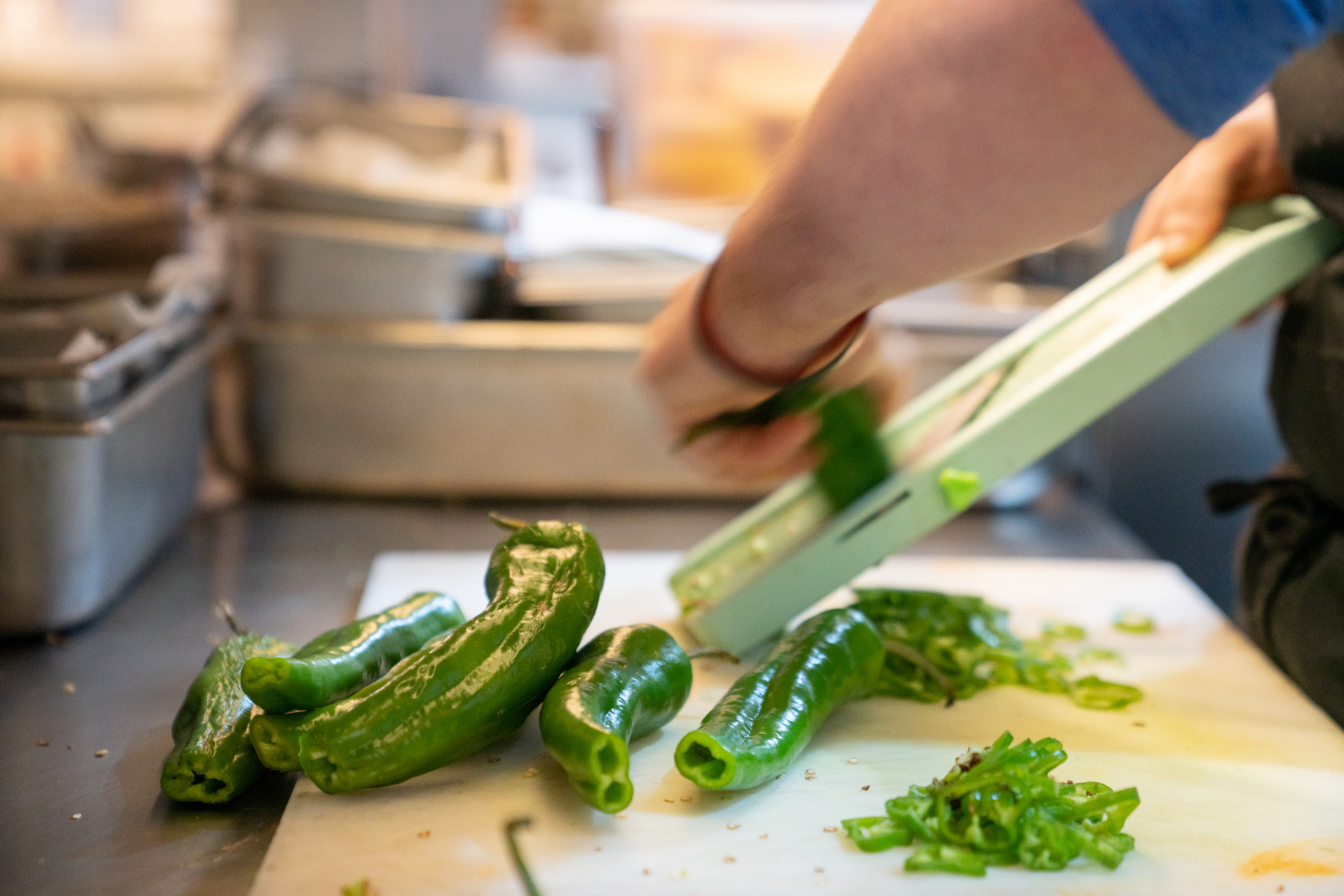
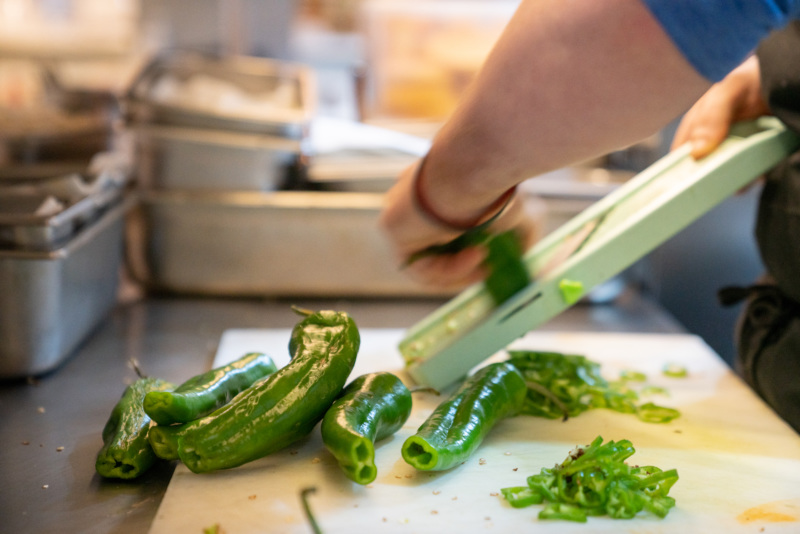
And despite the precedent of unquestionably talented women dominating vegetable-focused cuisine, there’s still a sense that “those who can’t do, cook vegetables.” Vegetarianism on a woman reads as a lifestyle choice — maybe she’s watching her weight or loves bunnies too much, or is a hippie chick who lives in a co-op — and a female chef who cooks vegetarian cuisine is seen as prioritizing that lifestyle over culinary excellence and rigor. Vegetables cooked by a woman are virtue and restraint. Meanwhile, there is something weirdly hyper-masculine about watermelon ham, as if rosy summer melons are only fit for consumption if brined in liquid smoke and pure testosterone.
There’s an obvious irony to this, given that Cohen has been cooking the kind of technique-driven, flavorful, moreish vegetables featured in that New York Times article for more than a decade. Although Dirt Candy now offers vegan versions of all its menu items, Cohen does not shy away from dairy, sugar, and fat—whatever a vegetable needs to be an incredibly delicious and novel version of itself. “I’m not the only one who has ever smoked a vegetable and sliced it thin,” she tells me, “but when I started doing it 12 years ago, I put it on the map.”
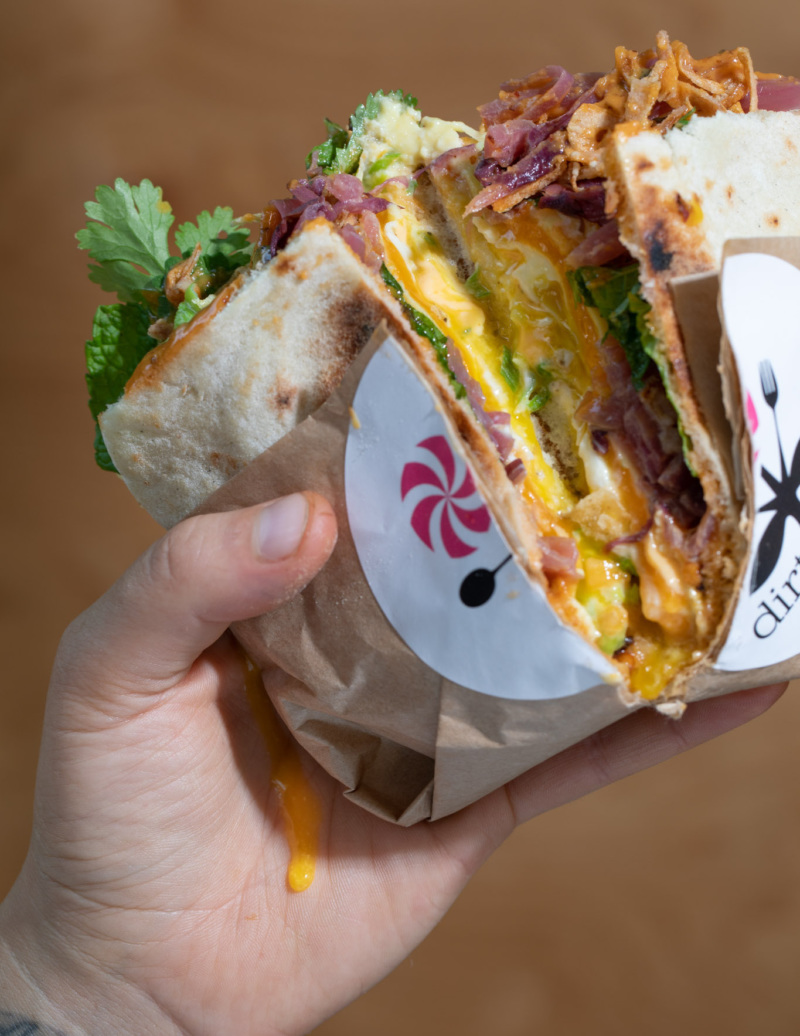

Currently on Dirt Candy’s menu is a Reuben featuring “corned beets” given that very treatment — salted, spiced, smoked, and shaved into deli meat-thin slices. They do not taste like beef, but that is entirely beside the point. Their peppery, salty earthiness is both delicious in its own right and hits all the classic Reuben notes, together with the caraway, Russian dressing, kraut. It’s texturally perfect, the silkiness of the beets playing against the crunch of the deeply toasted rye, and it is unquestionably a Reuben.
“I didn’t have a whole ethos behind opening a restaurant that served vegetables, besides the fact that I love vegetables, and I don’t happen to like meat very much,” Cohen explains. She became a vegetarian in her teens because all her friends were doing it and “it seemed like the cool thing to do.” But as she began to pursue cooking as a career, working everywhere from vegan hole-in-the-walls to mainstream restaurants to New York’s first Whole Foods, she found vegetarianism to be a liability to her professional development. “This was in the mid-’90s, and every restaurant was serving vegetarians the same meal: a grilled portobello mushroom in a red pepper sauce with a side of couscous. It was very clear that chefs didn’t care about vegetarians, so how was I supposed to become better at my job if I was only eating food that was an afterthought to chefs?” Cohen still cooks entirely vegetarian at home, but if she’s dining out, she’ll sometimes order fish, and won’t hesitate to try what’s on the table.
To be clear about her intentions, she was careful to brand Dirt Candy as a “vegetable-focused restaurant” rather than a vegetarian restaurant, a concept that is not nearly as unusual today as it was a dozen years ago. (Superiority Burger, which describes much of its menu as “accidentally vegan,” now operates out of Dirt Candy’s original East Village location.) “I saw a lot of male chefs embracing the vegetable-forward idea and suddenly becoming the ‘experts in the field,’” Cohen says. “I am the expert. But once white male chefs do something, other cooks get erased.”
▪️
This erasure extends to other pioneering stances that Cohen has taken. When she reopened Dirt Candy in its current location in February 2015, she eliminated tipping. “As business owners, we have to take better care of our staff,” Cohen told me. “I chose to do it through not tipping.” Nine months later, Danny Meyer announced the Union Square Hospitality Group would phase out gratuities, and Andrew Tarlow followed suit soon after. The Times covered the trend in 2016, interviewing six white men and no women. Cohen was, naturally, there to call them on it: “Nice to see @nytfood talk no-tipping. But why continue to erase women from this story? At least 4 do no tipping in NYC & I was the first. … this reinforces the BS notion that there are no female chefs out there. There are plenty, but press always leaves them out.”
While Meyer and Tarlow have since jettisoned their no tipping policies, finding them financially nonviable, Cohen has stayed the course. She sees it as a matter of principle, namely that, when front-of-house workers make the majority of their money from gratuities, they are at the mercy of customer whims. Multiple studies have shown white servers get tipped better than servers of color, and that tipped workers are twice as likely as non-tipped workers to be sexually harassed by customers. So it is the right thing, Cohen believes, to pay her employees — servers and line cooks alike — a stable, living wage in order to insulate them from slow Mondays, guests who leave 10 percent, and pandemics.
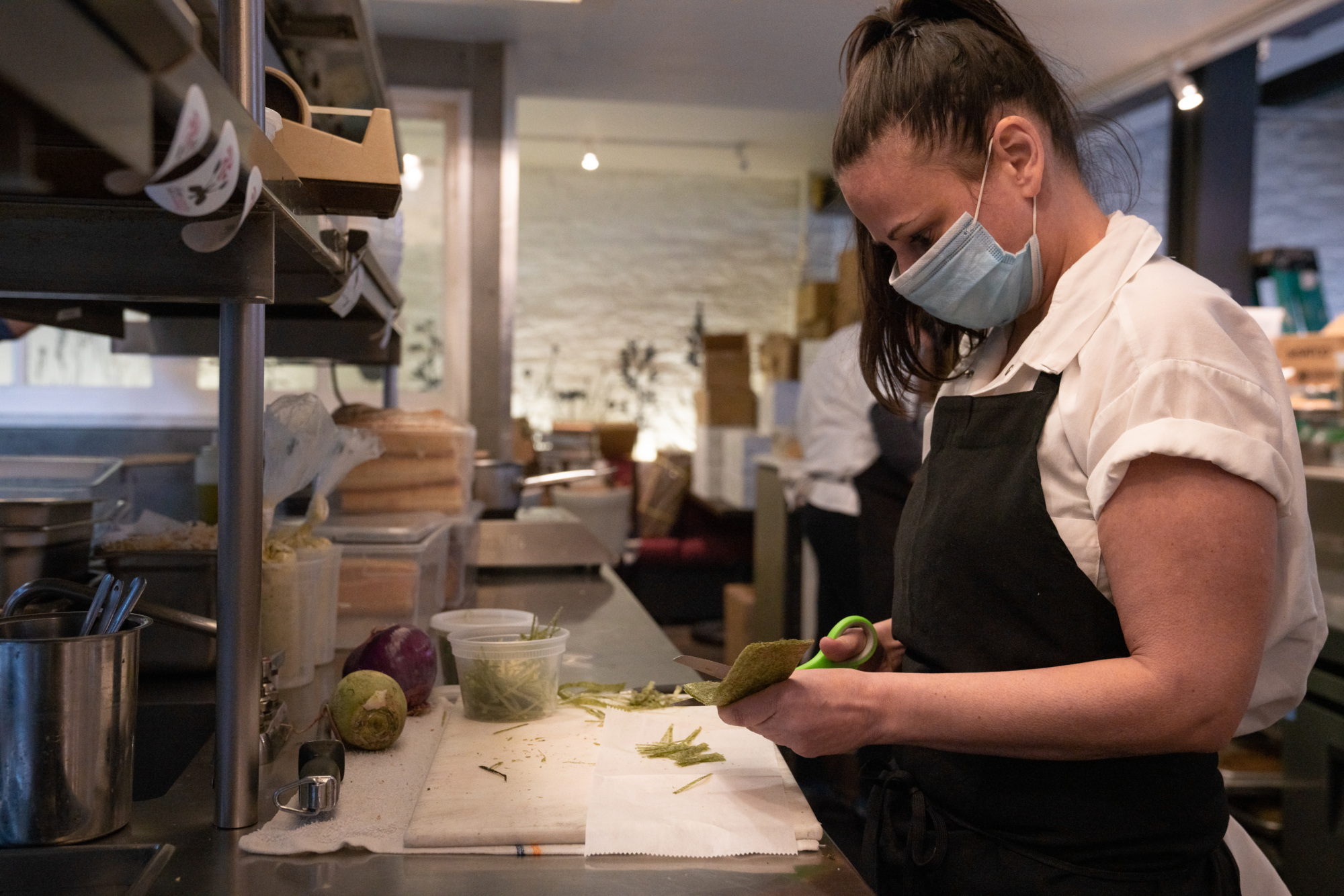
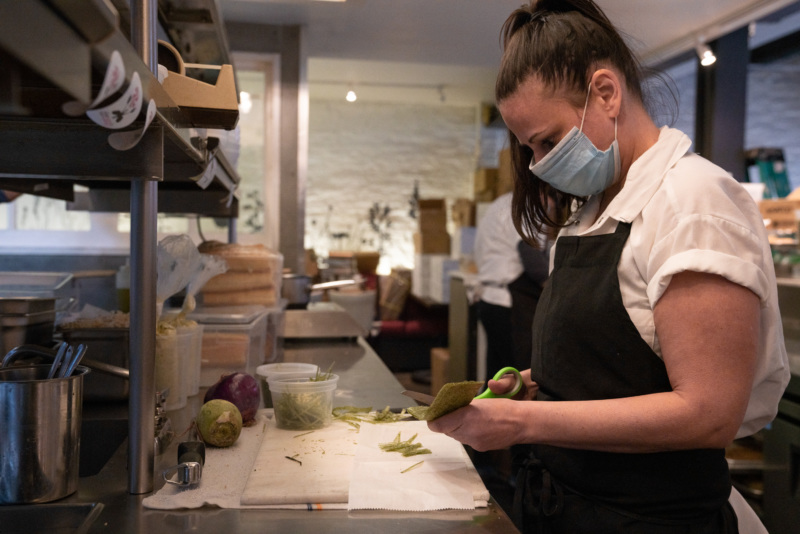
The moral high ground, however, is not always a smart business move. “Tips aren’t taxed, but payroll is,” Cohen explains. “For every dollar I make, 97 cents goes back out.” In other words, because Dirt Candy carries a higher payroll specifically because of her policy, she pays significantly more taxes than comparable establishments. Her insurance bill is higher, too, since workers’ comp is calculated based on payroll. In Cohen’s estimation, laws should make it easier, not harder, for restaurant owners to both do right by their employees and stay in business, and she aims to do something about it.
As part of the leadership team of the Independent Restaurant Coalition, a trade association that formed earlier this year in response to COVID, Cohen has been agitating for a seat at the table. “When the IRC started, few of us realized that there were 500,000 local restaurants employing 11 million workers in this country,” Cohen says. “None of us knew how much we were putting into the economy.”
Unlike the National Restaurant Association, which counts large corporate chain restaurants among its members, independent restaurants may not have the type of excess cash to fund a robust political action committee. But so far, the IRC has seen some success; in May, members of the coalition joined National Restaurant Association representatives for a meeting at the White House. (It should be noted that no women were invited by the Trump administration. “That’s not who they wanted to hear from,” Cohen remarks.) Cohen hopes that the IRC will continue to garner enough support from their members and interrelated industries to become a lobbying force, enacting laws that work for them.
For now, as temperatures have dropped and COVID rates surge, the coalition’s priority is to staunch the bleeding and keep as many owner-operated restaurants in business as possible. “New York has about 26,000 restaurants,” Cohen pondered in a Times op-ed last March. “What does the city look like with 20,000? With 15,000?”


“When I wrote that it was rhetorical,” she told me in October, “but those numbers are very, very real right now. We are on the cusp of losing an entire generation of chefs, and we need some sort of government intervention. I can hold on for a while, but I’m fortunate. I wanted to leave the industry in a better place than I found it, but in a few months, there might not be a restaurant industry left for me to fix.”
On a cold, rainy evening last fall, I dropped by Dirt Candy to pick up my to-go order — an Oktoberfest-themed menu featuring butternut squash schnitzel, and a sacher torte made with red bell pepper jam. I had canceled my dine-in outdoor reservation because of the rain, but upon my arrival I was surprised to see several of the sidewalk tables occupied. The diners looked cozy, protected from the rain by a sturdy awning and kept warm by overhead electric heaters, one per table.
I asked Cohen if she had had trouble procuring the heaters, having heard stories of restaurateurs forced to pay exorbitant prices in neighboring states. “It wasn’t a problem,” she replied. “We’ve had them ready to go for months because I saw the writing on the wall in early summer.”
That shouldn’t be a surprise. Amanda Cohen is ahead of us all — and we’d be wise to pay attention.
MacKenzie Chung Fegan writes about food, drinks, and culture for such publications as Bon Appétit, Vice, Wine Enthusiast, and the San Francisco Chronicle, and hosts the podcast Glitter & Doom. Follow her on Instagram and Twitter. Follow Resy, too.
Discover More
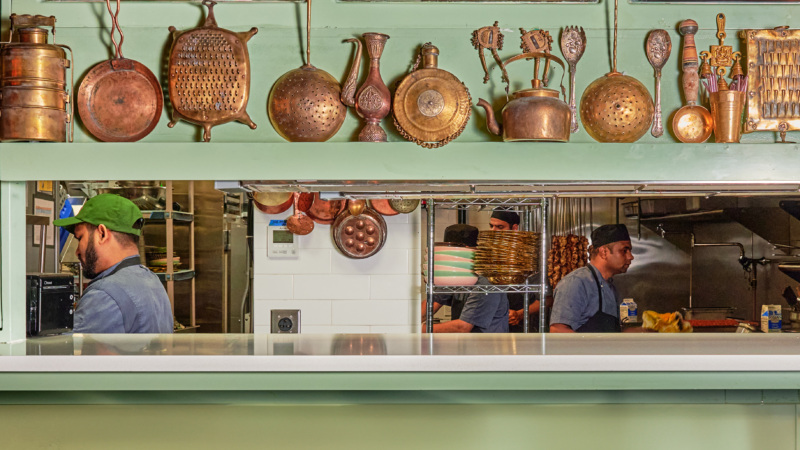
Stephen Satterfield's Corner Table


